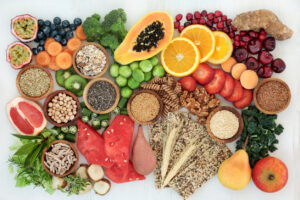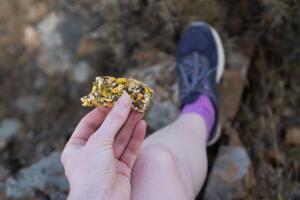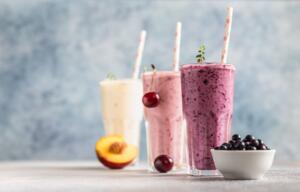It’s common knowledge that our eyesight gets poorer as we age. How do we know when it’s bad eyesight or something deeper that needs to be addressed, like macular degeneration? Here are the best and worst foods for macular degeneration and what you need to stock your fridge with today.
I’ve heard the term macular degeneration since I was younger and never gave it a second thought. Having 20/20 vision for most of my life, it was something that, honestly, I really didn’t need to know much about because it’s an “older person thing.”
However, sitting here decades later and typing with reading glasses on, macular degeneration has become a “thing” to learn about. As I’m not in transition lenses (yet), I get my eyes checked every year or two as suggested, but it never hurts to learn about the eye-restricting disease.
Macular Degeneration 411
Macular degeneration is a progressive eye condition that affects the macula, the central part of the retina responsible for sharp vision. It is a leading cause of vision loss in people over age 50, with two main types: dry and wet macular degeneration. The dry form occurs when the macula thins over time, leading to gradual vision loss, while the wet form involves abnormal blood vessels leaking fluid into the retina, causing faster and more severe vision impairment. Although there is no cure, treatments like medications, laser therapy, and lifestyle changes can help slow its progression and preserve vision.
Macular Degeneration Symptoms
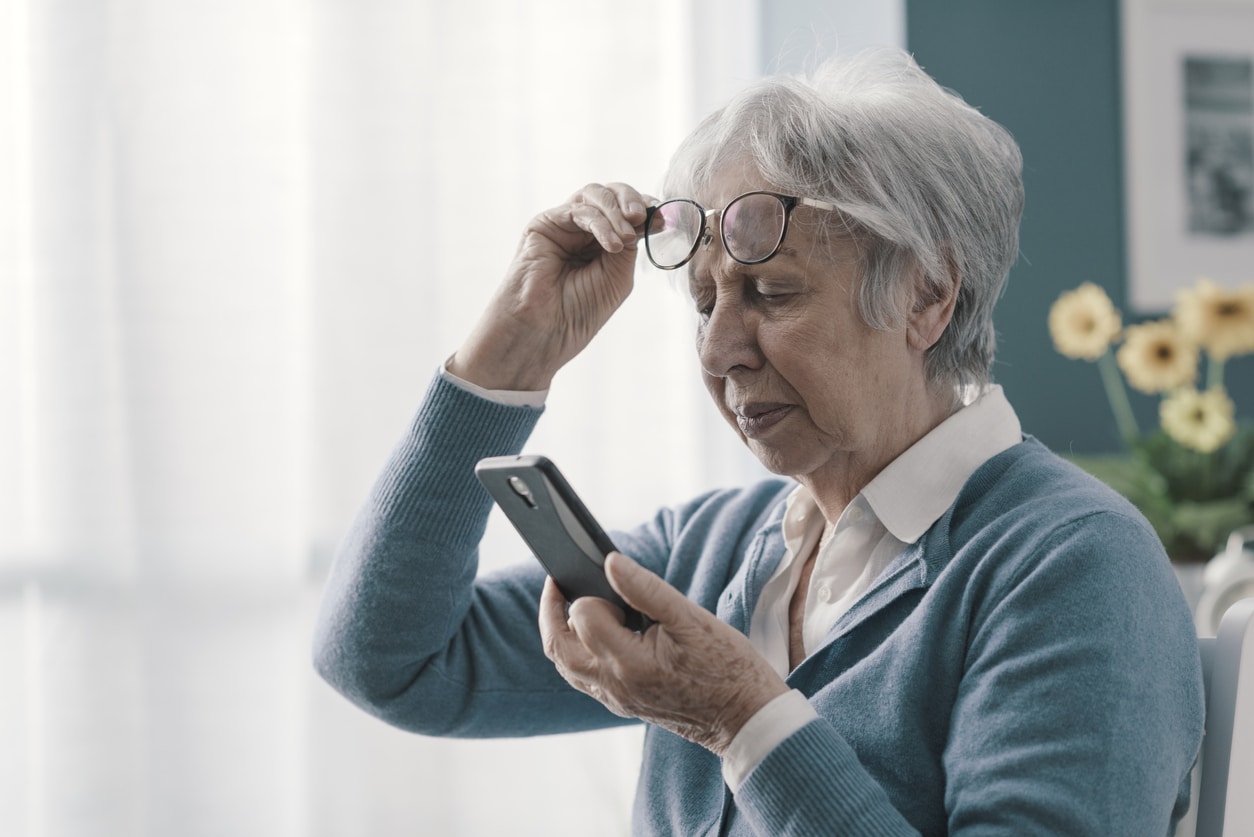
In case you need a quick refresher, macular degeneration is a retina problem. The retina is a part of the eye in the back responsible for capturing incoming light/photos that get transmitted to the brain.
When you go to the optometrist and have your eyes dilated (never turn down the sunglasses they give you if you forget your own), they look for early signs of the disease, along with other conditions like glaucoma and diabetic retinopathy. If drusen spots (small, yellow deposits) are noticed, it’s a warning sign for macular degeneration.
Because it affects your central vision, the main symptom is blurry vision, and by the time we’re 80 years old, we have a 35% chance of having the disease.
Not trying to freak you out (I know, never Google your symptoms), but here are additional symptoms you can be on the lookout for:
- Blurry, fuzzy vision
- Struggle with face recognition
- Lines that should look straight appear wavy
- A blind spot directly in the center of your vision
- Lack of central vision – it’s a must for driving a car, reading, etc.
Treatments for Macular Degeneration
Sadly, there’s no miracle cure for age-related macular degeneration, but there are several treatments that can slow its progress.
Amp up the Supplements – Increase the dosage of copper, zinc, and vitamins C and E.
Eye Injections – This may sound like a horror movie, but they’re specific to slowing down blood vessel growth that causes macular degeneration. From what I’ve read, numbing medicine is used in the area first, so it’s pretty painless.
Photodynamic & Laser Therapies – Both can be used to destroy abnormal blood vessels.
Poor Vision Assistance – Things like special lenses in your glasses, large print reading materials, and magnifiers for reading can all help with poor vision.
Foods for Healthier Vision
Again, there’s no way to stop macular degeneration; however, certain foods and a nutrient-dense diet can slow down the process. If you’ve heard of a Mediterranean diet, that’s essentially what you’re looking for.
You’ll want to keep with the well-rounded diet scheme and make sure to add in these popular foods:
Fruits & Vegetables
Make sure to amp up your diet with green, yellow, and orange fruits and veggies. Think of all the green, leafy vegetables, squash, sweet potatoes, oranges, peppers, and even pumpkins. These all give you vitamins A, C, and E, which may help.
Foods with Omega-3 Fatty Acids
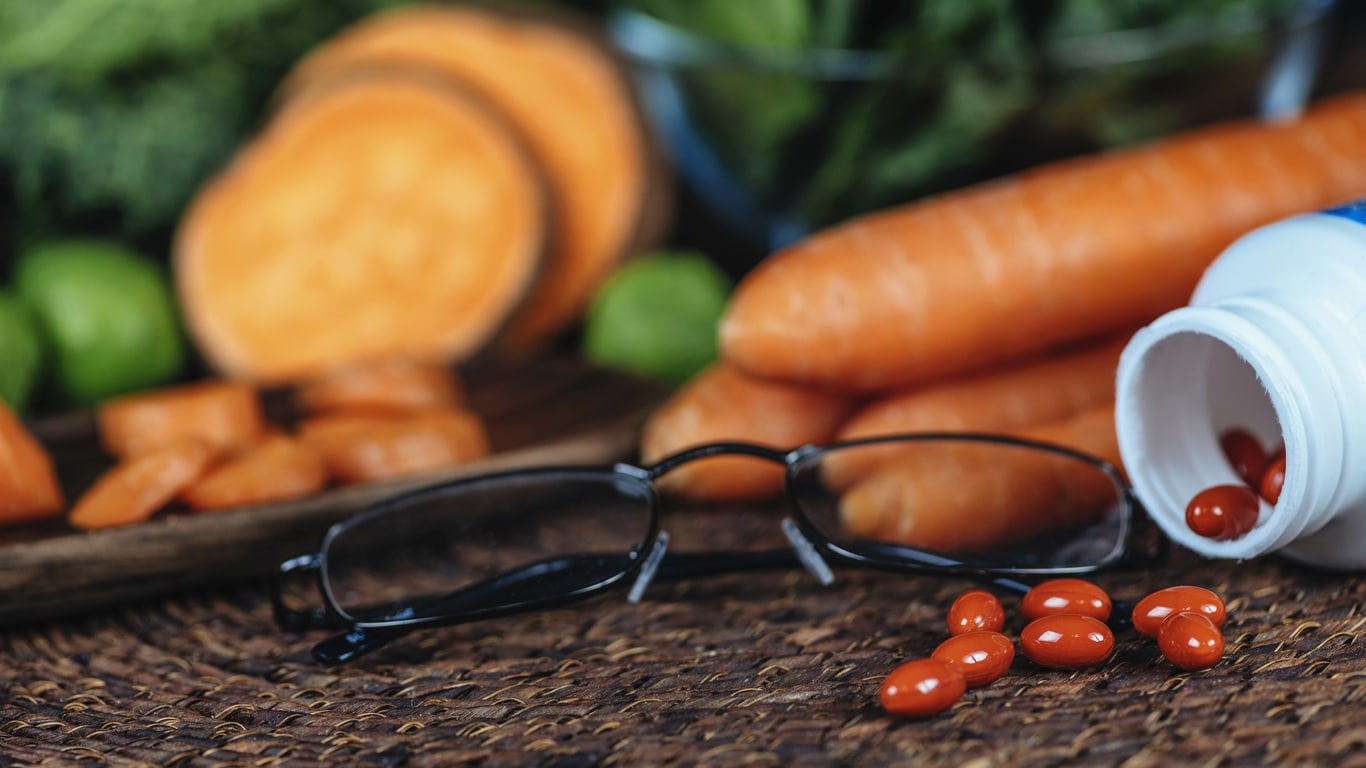
The first food that comes to mind regarding Omega-3 fatty acids is fish for EPA and DHA. If you’re a fan of it, you’re golden. If not, you may want to give fish another try (unless you are allergic, of course). However, if fish is a no-no, Brussels sprouts are a good Vegan option. Guava, blackberries, and raspberries are decent sources as well. If you love avocado toast, this green fruit is also a great source.
Protein
Pork, chicken, and turkey, but try to stick with white meats or even plant-based proteins.
Fats
This includes flax, wheatgerm, olive, and safflower, which contain the omega-3 fatty acid AHA.
Seeds and Nuts
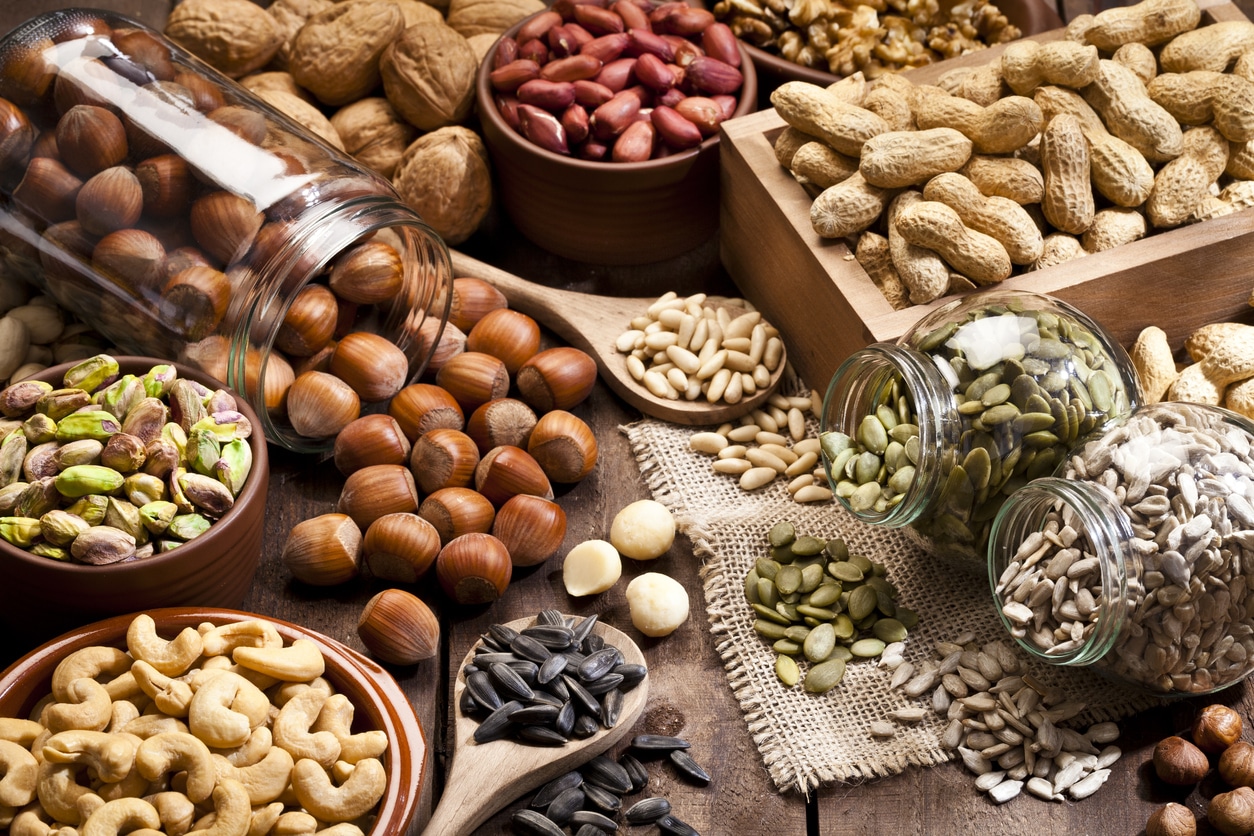
Walnuts, pecans, sunflower seeds, almonds, peanuts, chia, and flax have all been found to help with macular degeneration.
Foods that Worsen Macular Degeneration
Sadly, most of the things on the list of foods not to eat for macular degeneration are yummy, tasty comfort foods that most of us adore. Sigh.
Skip the Sweets
Anything with refined sugar should be kept to a minimum. Think soda, cake, cookies, donuts, syrups, and candy. These all cause an uptick in inflammation, which can hinder eyesight.
Junk Food
Avoid chips, pretzels, and crackers due to their high trans fats.
High-Fat Foods
Cut out the red meat, fatty pork, lamb, butter, and cream. Additionally, you’ll want to skip the fried chicken and French fries. As for cooking ingredients, cut lard, margarine, and vegetable shortening.
Read More:
Anxiety, Stress, and Your Vision
Stylish Glasses for Women Over 50: Step Up Your Eyewear Game


